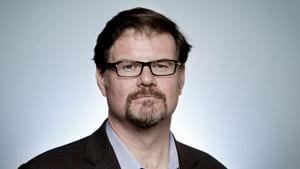The core struggle within the modern conservative landscape revolves around a significant ideological chasm: the clash between the defined principles of the MAGA movement and the mercurial will of Donald Trump himself. This inherent tension creates a persistent problem for those who seek to codify America First as a coherent political ideology, as President Trump frequently redefines its meaning to suit his immediate pronouncements. This dynamic is central to understanding contemporary US politics.
While “Make America Great Again” serves as a powerful rallying cry, its interpretation varies significantly across the Republican Party’s diverse base. Though not entirely monolithic, MAGA represents a distinct and dominant faction within the broader GOP coalition. Despite its internal diversity, this bloc does possess an identifiable worldview, yet its most fervent adherents often find themselves disillusioned when Trump’s actions or statements diverge from their established conservative politics and shared ideological convictions.
A prevailing sentiment among the new American right once was that allowing Donald Trump to operate without constraint would inherently align with their vision of MAGA. This echoes a historical parallel from President Ronald Reagan’s era, where “Let Reagan be Reagan” became a mantra for frustrated conservatives who perceived a drift toward centrism, often blaming moderate figures within the administration for ideological deviations.
Analysts suggest that Trump’s most passionate supporters learned from his first term, believing past struggles stemmed from hiring “wrong people”—traditional Bush Republicans lacking populist instincts. This conviction fueled initiatives like American Moment and Project 2025, specifically designed to cultivate and credential a new cadre of MAGA appointees, ensuring ideological purity within future administrations, and embedding conservative politics at every level of government.
Yet, Donald Trump himself has openly asserted his sole authority in defining “America First,” stating, “I think I’m the one that decides.” This declaration underscores the fundamental challenge to any attempts at establishing a fixed political ideology within the MAGA movement. His personal instincts, often driven by ego and a flair for dramaturgy derived from professional wrestling and reality television, consistently take precedence over philosophical coherence.
Concrete examples illustrate this ideological friction. Immigration hawks within the MAGA movement have expressed alarm over Trump’s suggestions to exempt certain worker groups from deportation plans, a position that seems to contradict their core tenets of strict border enforcement. His own admission of being “on both sides of the thing” further highlights his unpredictable nature in US politics.
The recent Jeffrey Epstein controversy has further complicated dynamics, creating a significant divide within the movement. It exposes a fundamental schism between those who define Trumpism as unwavering personal loyalty to Donald Trump and those who expect that loyalty to be reciprocated with a commitment to “cleansing” a perceived corrupt globalist elite, a key tenet of some conservative politics factions.
Unlike Reaganism, which was rooted in a discernible political ideology, Trumpism is perhaps better understood as a unique psychological phenomenon. It explains both Donald Trump’s behavior and the intensely performative, almost cultish, loyalty of his followers. His stated virtue of unpredictability means that anyone expecting a consistent philosophical framework from the MAGA movement is bound to be disappointed.
The persistent frustration within the MAGA movement is compounded by the observation that influencing Donald Trump often relies on personal flattery and celebration of his perceived genius, rather than ideological argumentation. Ultimately, a political movement defined primarily by allegiance to a singular, unpredictable personality inherently risks fragmentation and dissolution once that figure departs the political stage, or even sooner, presenting a significant challenge for the future of conservative politics in America.






Leave a Reply